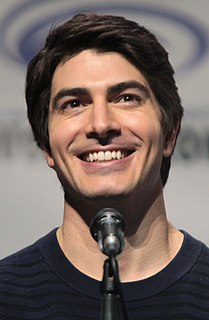A Quote by Rob Van Dam
I'm a big fan of non-fiction, and I am a believer that fact is much more exciting than fiction.
Related Quotes
To be a science fiction writer you must be interested in the future and you must feel that the future will be different and hopefully better than the present. Although I know that most - that many science fiction writings have been anti-utopias. And the reason for that is that it's much easier and more exciting to write about a really nasty future than a - placid, peaceful one.
In some ways I spend longer at non-fiction because there are a lot of different threads to bring together. But non-fiction is more reflective than immersive. The problem with fiction sometimes is that you have to leave the real world to enter the fictional one. And that takes so much, goes into your head for so long?.?.?.?I don't know, I just feel less inclined toward that these days, and more inclined to remain in my own life. I do like really good fiction, but it's getting harder to hold my attention in a novel.
I remember reading an interview with a writer who said that in nonfiction if you have one lie it sort of messes it up. But in fiction the real details give you so much more credibility, because people do so much research just to write fiction. In fiction you're trying to recreate something lifelike.
I'm more thrilled by the short fiction than I expected to be. I've found more pleasure in reading short fiction than I used to. By seeing what kinds of thinking are going on in short fiction. I was also surprised by the panic I've felt, especially at first, when we'd put an issue to bed and then realized we had to put another one together.


































